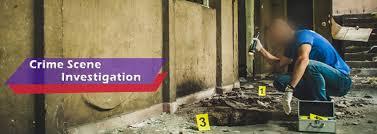Crime Scene Investigation and Reconstructions in India by Fondelco FFSL

Crime scene investigation (CSI) is one of the most critical aspects of forensic science and criminal justice. In India, with its complex legal framework, vast population, and increasing crime rates, the importance of scientific crime scene management has grown tremendously. The process not only involves identifying, collecting, and analyzing evidence but also reconstructing the sequence of events to understand what actually happened at the scene. Fondelco Forensic Science Laboratory (FFSL) emphasizes the significance of modern forensic methods and advanced reconstructions to ensure justice is delivered with accuracy and speed.
The Importance of Crime Scene Investigation
A crime scene is the silent witness to an unlawful act. It holds crucial evidence that can link suspects, victims, and circumstances to the crime. Any negligence in handling the scene can lead to contamination or loss of evidence, which in turn may weaken the case in court. In India, proper crime scene investigation helps in:
- Preserving physical evidence such as fingerprints, footprints, blood, fibers, or weapons.
- Establishing the cause, time, and manner of the crime.
- Correlating forensic evidence with witness testimonies.
- Supporting the judiciary with unbiased, scientific reports.
FFSL recognizes that effective CSI lays the foundation for reliable forensic analysis and justice delivery.
Steps in Crime Scene Investigation
The process of crime scene investigation in India typically follows a structured approach. Some of the essential steps include:
- Securing the Scene – Law enforcement officers cordon off the area to prevent tampering with evidence.
- Documentation – Investigators record every detail using photography, videography, sketches, and notes.
- Systematic Search – Different search patterns such as grid, line, or spiral methods are employed depending on the size and nature of the scene.
- Evidence Collection – Biological, physical, and trace materials are carefully collected using gloves, swabs, and specialized kits.
- Preservation and Transportation – Samples are sealed, labeled, and transported under a proper chain of custody to forensic laboratories like FFSL.
This systematic process ensures that evidence remains admissible in court without any question of manipulation.
Crime Scene Reconstruction
While evidence collection is important, reconstruction is equally critical. Reconstruction involves analyzing all pieces of evidence to recreate the sequence of events that led to the crime. For example, in a homicide case, bloodstain pattern analysis may help investigators determine whether the victim was standing, sitting, or lying down at the time of attack. Similarly, ballistics analysis can identify the trajectory of bullets and the type of firearm used.
FFSL utilizes advanced forensic tools for reconstruction, including:
- 3D crime scene mapping for visual representation.
- Forensic animation and simulations to explain events in court.
- DNA profiling and fingerprint databases for accurate identification.
- Digital forensics to reconstruct cybercrime activities.
By combining science, technology, and expert analysis, reconstructions provide investigators with an evidence-based narrative of the crime.
Challenges in India
India faces several challenges in crime scene investigation and reconstruction:
- Lack of awareness and training among first responders.
- Shortage of modern forensic infrastructure in rural areas.
- Delayed evidence processing due to heavy case backlogs.
- Legal limitations and insufficient coordination between police and forensic experts.
Despite these challenges, organizations like Fondelco FFSL are working to bridge the gap by offering private forensic services, advanced laboratories, and expert testimony support.
Role of Fondelco FFSL
Fondelco Forensic Science Laboratory (FFSL) plays a pioneering role in strengthening forensic practices in India. With its team of skilled forensic scientists, advanced equipment, and emphasis on accuracy, FFSL ensures that Crime Scene Investigation and Reconstructions in India meet international standards. The laboratory provides services such as:
- On-site crime scene assistance.
- Evidence collection and preservation guidance.
- Forensic testing across DNA, toxicology, ballistics, and digital forensics.
- Detailed reports and expert testimony for court proceedings.
By bridging the gap between law enforcement and science, FFSL contributes to quicker resolution of cases and ensures that justice is based on factual evidence.
Conclusion
Crime scene investigation and reconstructions are the backbone of modern forensic science in India. They not only reveal the truth hidden at crime scenes but also uphold the integrity of the judicial process. With rising crime rates and complex criminal cases, scientific methods have become indispensable. Fondelco FFSL, with its expertise and advanced facilities, continues to lead the way in bringing precision, transparency, and reliability to forensic investigations.
- Art
- Causes
- Crafts
- Dance
- Drinks
- Film
- Fitness
- Food
- Games
- Gardening
- Health
- Home
- Literature
- Music
- Networking
- Other
- Party
- Religion
- Shopping
- Sports
- Theater
- Wellness


